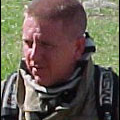"Chief, I want a transfer," declared an exasperated Firefighter Jones. "I just can't work with Lieutenant Murphy any more."
"Why?" inquired Chief O'Malley.
"Lieutenant Murphy just can't be pleased. Every time we carry out an assignment, he tells us we did it wrong, and he makes us do the work over. There is nothing wrong with the work we do; it's just not the way he wants it done. I've had enough!"
"Let me look into it," responded Chief O' Malley.
"Chief, I want a transfer" declared an obviously frustrated Firefighter Smith.
"Why?" inquired Chief O' Malley.
"Lieutenant Johnson doesn't give us any direction. We come to work and just sit around waiting for him to get off of the computer. But even when he comes out of his office we don't do anything. I feel like we are just floating along. It's frustrating."
"Let me look into it," responded Chief O' Malley
Pressure! It can be good and it can be bad. It all depends upon the amount applied and when. The amazing thing about pressure is that the right amount can turn a piece of coal into diamond, but too much pressure can turn that same coal into dust. The proper amount of pressure can create a beautiful gem. The wrong amount leaves a pile of rubble.
In each of the examples above the respective employees are responding to either the use of too much or too little pressure. As a leader it is your responsibility to provide an appropriate amount of pressure to get each of your subordinates to become a gem and not a pile of rubble. Unfortunately, not every employee will become a diamond (despite your best efforts). This fact does not relieve you of your responsibility to lead with the right amount of pressure to get the job done, and if necessary, to apply the right amount of pressure to remove the poorly performing employee. Further complicating the application of pressure is the fact that each and every one of us perceives pressure differently. It is subjective at best and open to interpretation by a variety of kitchen table officers who are too lazy to actually sit for the lieutenant's examination, but enjoy throwing rocks at management.
In the first example it is obvious that Firefighter Jones believes his particular lieutenant is putting an excessive amount of pressure on the crews. The constant application of this overbearing management style will not get a crew to perform effectively. They will half-heartedly perform the assigned task, knowing full-well that the overbearing company officer will come along and throw his expected tantrum and demand that the task be done over until it is completed to his liking. Lieutenant Murphy's message comes through loud and clear: It's my way or the highway.
In the second example Firefighter Smith is expressing dissatisfaction with an environment that lacks any amount of pressure. It may seem strange that a group of employees would complain about not having pressure placed on them. However, Lieutenant Johnson's hands-off, minimal-direction style does not contribute to developing trust and confidence in the leader or cohesiveness in the team. In reality both Lieutenant Murphy and Lieutenant Johnson produce the same result: Employees who are dissatisfied and unwilling to put forth any effort. Lieutenant Murphy's crew can't win, and Lieutenant Johnson's crew doesn't have anything to win. In both cases, why should they even try?
These two leaders have arrived at the same ends, but their means were different. Each of these leaders has, in effect, created an environment of mistrust, and has changed their respective employees from potential gems to piles of dust. Unfortunately, there is no magic answer as to the right or wrong amount of pressure to apply as you continue to search for those diamonds. The most important thing to realize is that your actions as a leader either put pressure on your employees or take pressure away. The question you need to continually ask yourself is, are you producing diamonds or making dust? As a leader you obviously need to take a good look at your crew, but you also need to take a good look at yourself. You need to constantly re-evaluate the amount of pressure that you exert. Just remember: diamonds or dust!
Author's note: On July 22, 2005 my family and I were involved in a very serious auto accident in Jacksonville, Florida that left me with two fractured cervical vertebrae. I want to say thank you to the members of Jacksonville Fire Rescue as they rallied around me and provided for my family during this difficult time. In particular I want to say thank you to Chief Larry Peterson, Captain Nick Tison, and Firefighter Brian Ross. I also want to thank the many individuals who sent me "get well" emails from around the world. This incident has reminded me why I am proud to call myself a firefighter and be associated with such an honorable profession.
About the Author
